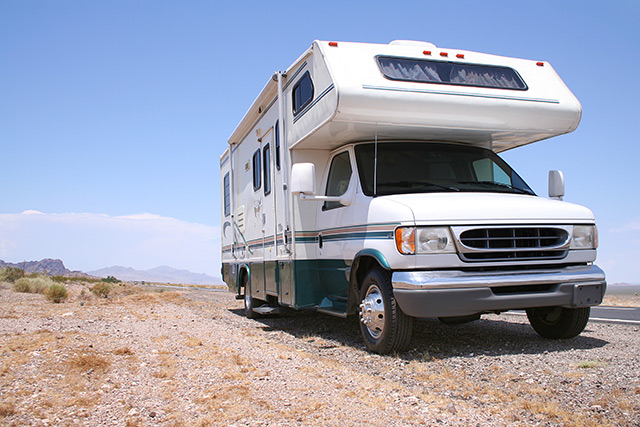
Vacations take weeks or even months of planning, and preppers know that their vacation prep should also include emergency preparedness plans.
If you're traveling to another country for your next vacation, it pays to take the necessary precautions so you can deal with common scenarios like an accident, illness or a natural disaster.
Before leaving for your trip, follow the tips below to ensure that you're ready for common survival scenarios while on vacation. (h/t to TheSurvivalMom.com)
Basic tips when preparing to travel abroad
Here are some basic tips for international travel:
- Check if your passport is current and renew it if necessary. If you don't have one, apply for a passport before your trip.
- Check for visa requirements in your destination and ensure you get everything in order on time. These requirements can change so always check before finalizing your travel plans.
- Check the latest travel alerts and warnings.
- Purchase a travel guide or two and maps to learn about the lay of the land, the people, their culture and customs, the language and currency.
Learn about your destination
Read up on your destination before your trip. This will help you learn key information about the country.
For a brief overview of your destination, check The World Factbook, an annual publication from the Central Intelligence Agency (CIA).
The World Factbook offers data about every country in the world, with useful baseline information for a trip. Search different topics like a country's history, geography, culture and government.
You can also check data about your destination's economy, communications and transportation. (Related: Bug out survival planning: How to get out of the city after SHTF.)
Prepare important documents
Never travel without your personal, financial and travel documents. You might get in trouble if you find out you're missing important documents, especially after you've already left the country.
Make a copy of your:
- Birth certificate, which will provide proof of your country of origin and citizenship aside from your passport.
- Passport
- Driver’s license
- Travel itinerary
- Any other important records for the trip
Keep one hard copy as a backup set with you. Fold and store the documents in a waterproof pouch.
For your backup, save the records as images or a PDF and store the data on a password-protected USB flash drive/memory stick. This is important if you are traveling to a location with poor internet infrastructure.
You can also upload the electronic version to a file hosting service that you can access online using a computer, tablet or smartphone.
Send a copy of your documents to a trusted family member or friend in the U.S. Make sure they also know your travel plans so they can help you if you encounter any serious issues on your vacation.
Prepare an emergency contacts list and safe places list
If a natural disaster, medical emergency or other major emergency occurs in the country you are visiting, make sure you know which places can offer help.
Before leaving for your trip, check the address and phone numbers of the U.S. Embassy and consulate office, along with any U.S. military bases in the area.
As a backup, find the same information for any country that uses English as a primary language, such as Australia or the U.K. Add this information to your travel documents.
Enroll in STEP
You can sign up for free at The Smart Traveler Enrollment Program (STEP).
Here are three benefits of doing so:
- Your whereabouts are known.
- You can receive updated travel warnings, alerts and other important information for your trip.
- It helps family and friends contact you during emergencies.
This service is optional and you can weigh the pros and cons before you decide if you want to enroll.
Alternatively, you can register with the U.S. Department of State.
Locate medical facilities
If you or someone in the family has medical conditions, it's useful to know where to obtain medical help before departing. When SHTF, you should already have this information.
Write down the address and phone number for hospitals and medical clinics in the area where you'll travel. Ask if any of these facilities are designated for English-speaking or tourist care.
In most cases, these establishments will have staff who can speak English. Add this information to your other travel documents.
Learn about local currency
When dealing with an emergency, you will most likely need cash because it's one of the best ways to ensure that you get help when SHTF. You can also use money to show your appreciation even if you don’t speak the local language.
Try to limit the amount of money you have in your wallet and use a designated credit card for most of your financial transactions when traveling overseas.
Part of your prep should include finding out what the local currency and the exchange rate are. Check if they accept or prefer dollars.
Aside from emergency and medical institutions, try to locate where the local banks and ATMs are along your travel route. This ensures that if SHTF, you can easily get more cash if needed, minimizing what you need to keep on your person.
Mark locations on a map
It's easier to navigate a new place when you have a map.
You can find a map for sale with travel books and guides. Before your trip, carefully mark all the locations you are staying at during your trip, along with the U.S. Embassy or consulate, hospitals, medical clinics, ATMs and banks.
Before leaving for your trip, prepare important documents, learn the language and the culture and hone your survival skills to prepare for any emergencies while you're visiting another country.
Read more articles with travel safety and prepping tips at Preparedness.news.
Watch the video below for tips on what to include in your EDC (everyday carry) bag.
This video is from the The Urban Prepper channel on Brighteon.com.
More related stories:
Urban survival tips that can help you stay alive when you need to bug out.
Survival basics: 7 Essential skills for modern preppers.
Bug out survival planning: Transportation ideas during a financial crisis.
Sources include:
Please contact us for more information.



















